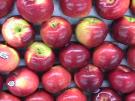| Admissions | Accreditation | Booksellers | Catalog | Colleges | Contact Us | Continents/States/Districts | Contracts | Examinations | Forms | Grants | Hostels | Honorary Doctorate degree | Instructors | Lecture | Librarians | Membership | Professional Examinations | Programs | Recommendations | Research Grants | Researchers | Students login | Schools | Search | Seminar | Study Center/Centre | Thesis | Universities | Work counseling |
|
What are countable nouns? What are uncountable nouns? What are nouns that can be countable and uncountable? How are countable nouns preceded? A noun can be countable or uncountable. Countable nouns can be "counted", they have a singular and plural form . For example:
Uncountable nouns (also called mass nouns or noncount nouns) cannot be counted, they are not seperate objects. This means you cannot make them plural by adding -s, because they only have a singular form. It also means that they do not take a/an or a number in front of them. For example:
An uncountable noun is one that usually cannot be expressed in a plural form. For example, "milk," "water," "air," "food."
Making uncountable nouns countableYou can make most uncountable noun countable by putting a countable expression in front of the noun. For example:-
Sources of confusion with countable and uncountable nounsThe notion of countable and uncountable can be confusing. Some nouns can be countable or uncountable depending on their meaning. Usually a noun is uncountable when used in a general, abstract meaning (when you don't think of it as a separate object) and countable when used in a particular meaning (when you can think of it as a separate object). For example:- glass - A glass of water. (Countable) | A window made of glass. (Uncountable) Some supposedly uncountable nouns can behave like countable nouns if we think of them as being in containers, or one of several types. This is because 'containers' and 'types' can be counted. Believe it or not each of these sentences is correct:- Doctors recommend limiting consumption to two coffees a day. The coffees I prefer are __________ and __________. !Note - In good monolingual dictionaries, uncountable nouns are identified by [U] and countable nouns by [C]. Countable / Uncountable Lesson
Asking questions for an amount or a number:
Countable NounsCountable nouns are easy to recognize. They are things that we can count. For example: "pen". We can count pens. We can have one, two, three or more pens. Here are some more countable nouns:
Countable nouns can be singular or plural:
We can use the indefinite article a/an with countable nouns:
When a countable noun is singular, we must use a word like a/the/my/this with it:
When a countable noun is plural, we can use it alone:
We can use some and any with countable nouns:
We can use a few and many with countable nouns:
| ||||||||||||||||||||||||||||||||||||||||||||||||||||||||||||||||||||||||||||||||||||||||||||||||||
Nouns that can be Countable & UncountableUncountable NounsUncountable nouns are substances, concepts etc that we cannot divide into separate elements. We cannot "count" them. For example, we cannot count "milk". We can count "bottles of milk" or "litres of milk", but we cannot count "milk" itself. Here are some more uncountable nouns:
We usually treat uncountable nouns as singular. We use a singular verb. For example:
We do not usually use the indefinite article a/an with uncountable nouns. We cannot say "an information" or "a music". But we can say a something of:
We can use some and any with uncountable nouns:
We can use a little and much with uncountable nouns:
|
Nouns that can be Countable & UncountableNouns that can be Countable and UncountableSometimes, the same noun can be countable and uncountable, often with a change of meaning.
|
|
What is the word apple? Is it a countable noun? Does the word have a plural? Countable nouns can be preceded by a, an, or a number. We usually do not use the indefinite article a/an with uncountable nouns. A or an never precedes a proper noun. The precedes a non-count noun that names specific members of a category. What should precede two countable nouns in a sentence? When do we use the word the in a sentence? Let's read the book. I mean a specific book. Let's read a book. I mean any book, rather than a specific book. Both are correct. What are the sentences that have a proper noun without the word the? What are the sentences that have proper noun with the word the? |











